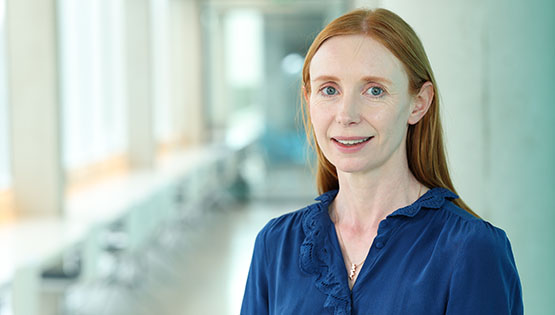Micro-credential
4 months
Hybrid - Part-time
10 ECTS
January 2026
About
Investigate the evidence base for current rehabilitation approaches, update your theoretical knowledge, and advance your clinical skills with the micro-credential in Neurorehabilitation from RCSI School of Physiotherapy.
The course uses a case-based approach with cases drawn from a range of neurological conditions and disabilities. You will advance your knowledge of current neurorehabilitation practice and develop your critical and analytical thinking processes when assessing and developing therapeutic interventions for people with neurological conditions.
The course is delivered part-time in a hybrid model with online material for participants to access in their own time and prior to workshops/classes.
This self-directed learning is followed by scheduled in-person workshops and classes in RCSI's St Stephen's Green campus.
This course is a Level 9 award on the Irish National Framework of Qualifications.
Learn with case-studies from a range of neurological conditions and disabilities
Advance your knowledge of current neurorehabilitation practice
Develop processes for assessing and developing therapeutic interventions
Suitable for
This course is for healthcare professionals working in clinical neurology and/or neurological rehabilitation in hospital, community or private practice settings. Professionals such as physiotherapists, occupational therapists and nurses may apply for this course.
Faculty highlight
Register your interest
Course information
On successful completion of this module, the student will be able to:
- Demonstrate critical understanding of the theoretical and evidence basis of neurological rehabilitation and motor learning; and apply this to practice for people with neurological conditions, using the WHO International Classification of Functioning, Disability and Health (ICF) framework.
- Demonstrate ability to apply knowledge of critically appraised evidence to assessment and therapeutic intervention for people with neurological conditions and neuro-disabilities, using a case-based approach.
- Plan evidence-based, personalised therapeutic interventions to improve motor function, including gait and balance, for people with neurological conditions.
- Critically analyse the emerging evidence and practice in digital health in neurological rehabilitation.
- Develop excellent ability to communicate rehabilitation to patients, families, fellow healthcare professionals, and the public.
January to May.
Four in-person half days.
Students who successfully complete this module and pass the assessment will receive a certificate detailing the academic award and credits received. This is a postgraduate programme and those who complete this course will gain 10 European Credit Transfer System (ECTS) at Level 9 on the National Framework of Qualifications (equivalent to Level 7 on the European Framework of Qualifications).
Admissions
To be considered for entry into the programme, applicants must:
- Be a healthcare professional.
- Hold a bachelor degree. If you don’t hold a bachelor degree, please see the recognition of prior learning pathway.
- Experience working with people who have neurological conditions and / or neurorehabilitation is desirable, but not. essential.
Each application will be assessed on an individual basis.
If English is not your first language, you will also need to supply a copy of an academic IELTS examination or equivalent, with an overall score of at least 6.5 and no individual band below 6.5. English language requirements for RCSI Postgraduate programmes are published here.
If you do not meet the minimum academic requirements above, you may still be eligible to apply through recognition of prior learning (RPL). RPL is the assessment of knowledge, skills and competence previously acquired.
Fees: €1,350 (to be paid on acceptance of the course).
ECTS credits: 10.
How to apply
Applications for the 2024-25 intake are now closed. For further information and updates on this programme, please register your interest above.



